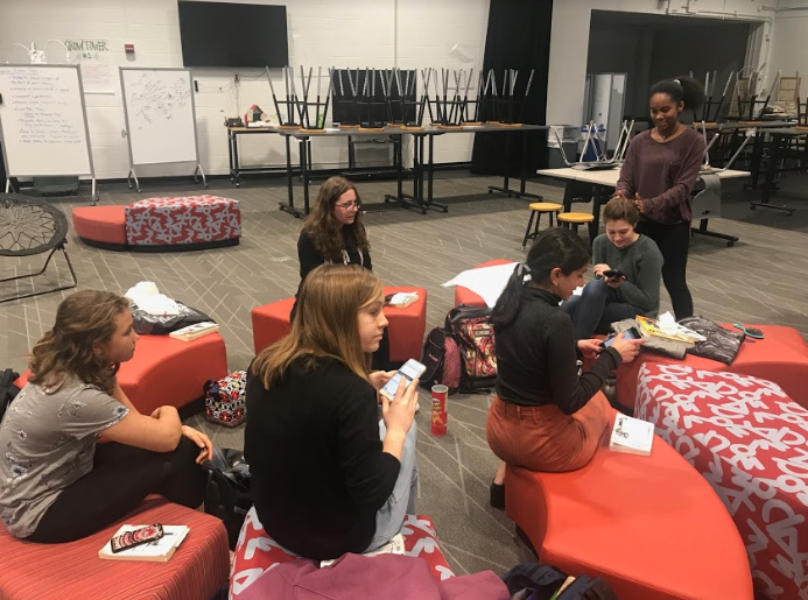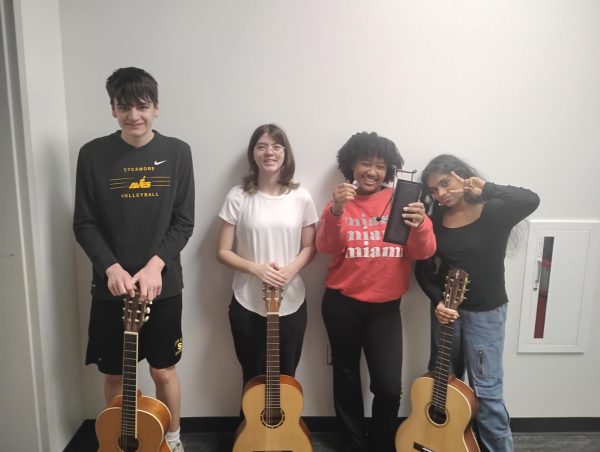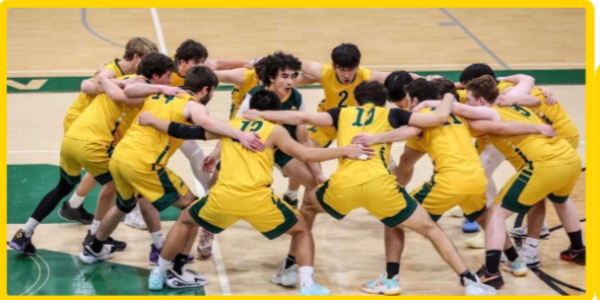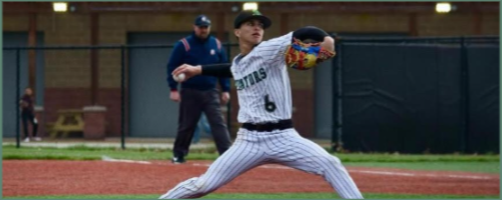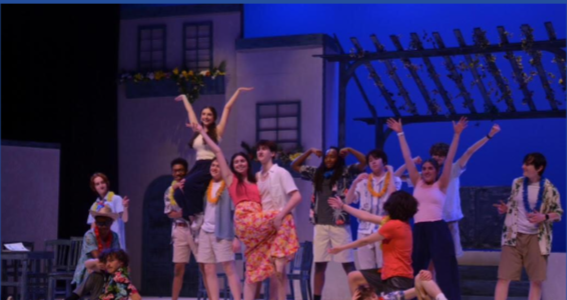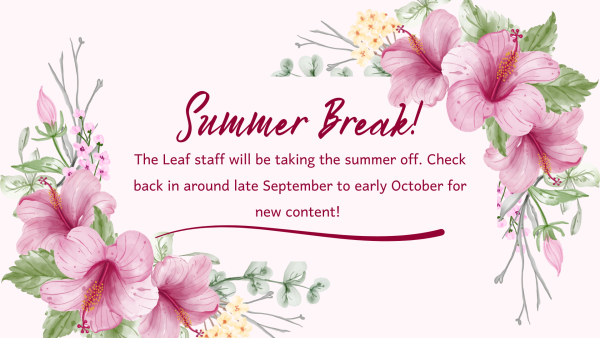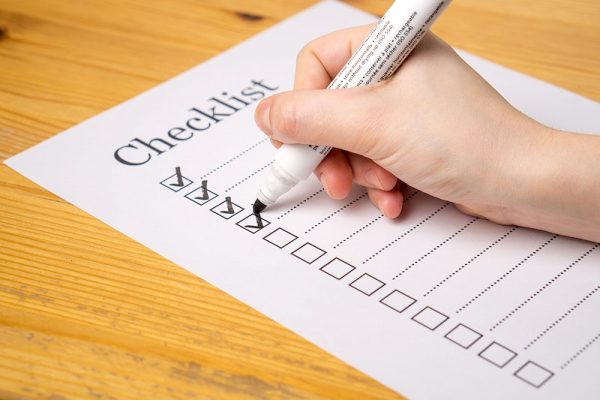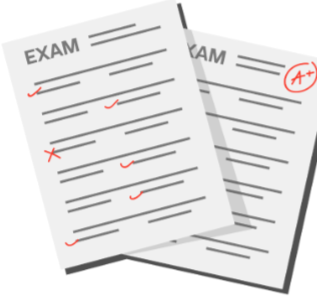Book club members on how to read for pleasure
READ TOGETHER. Book Club researches and discusses as they choose their next read. The club meets every other Tuesday in the Synnovation Lab. They just finished reading Aldous Huxley’s 1932 dystopian classic “Brave New World,” and is now starting “The Immortalists” by Chloe Benjamin.
As streaming services like Netflix, Hulu, and Prime Video continue to grow their domains and maintain their grip on American teenagers, such antiquated forms of entertainment as reading books may seem all but obsolete.
Yet when the right book finds its way into the hands of the right reader, the concept of reading can go from being a boring, compulsory school assignment to an enriching, compelling form of entertainment.
What’s more, reading books has been proven to improve focus and concentration, expand vocabulary, enhance writing and analytical thinking skills, increase empathy, boost memory, improve sleep, and serve as a form of mental stimulation or stress relief. With a public library membership, it’s also free entertainment and education.
SHS’s own Book Club, sponsored by Mr. Breen Reardon, English teacher, is an amalgam of avid book nerds, foodies, and pleasure-readers looking for book recommendations or motivation to keep books as a constant in their lives.
Round table Q&A with Book Club members Dylan Connors, Corinne Baker, & Abigail Dowden.
Q: What advice would you give to those who are interested in making books a larger part of their lives, but do not know what to read or where to start?
Dylan Connors, 10: Join Book Club.
Corinne Baker, 9: You could always ask a teacher for a recommendation. Tell them what kind of things you’re interested in [that are] non-book-related, and they might be able to help you find a genre or a book.
DC: Also, if you don’t know what you want to read, just start reading anything, and with the books you read, you’ll figure out what you like and what you don’t like, just by [trying out] different genres and everything like that.
CB: Just try a bunch of different [types of books]. You might think you like one thing, and then you try something else and you like it better. You never know.
Abigail Dowden, 9: There’s also GoodReads; they have good suggestions. Or you could literally just Google ‘good books for teens.’
Q: What advice would you give to those who enjoy pleasure-reading, but struggle to fit it into their schedules?
AD: I usually read on the bus to school or on the way back from it, or before we have to go to class in the morning.
CB: I read a lot before I go to bed because it helps me calm down.
DC: I think instead of being on your phone when you fall asleep, I think [reading] will help you go to sleep better, because the light on your phone tends to keep you awake. So if you feel like you don’t have time [to read], right before you go to sleep, maybe just dedicate, like, thirty minutes to reading, and it will actually help you fall asleep a lot better.
Q: With Book Club, you read consistently, and many of you also read on your own. What kind of impact do you feel that has had on your lives?
AD: I feel like being well-read and reading just helps you learn more about your world, and it just helps you be a happier person.
DC: I think it helps fill up your imagination more, too, because there’s a difference between reading something and actually seeing it. With books, you can pretty much imagine anything, versus [with] watching a movie, [where] what you see is what you immediately associate it with, if that makes sense. So I guess it helps you explore more with your imagination.
Sources:
Your donation will support the student journalists of Sycamore High School. Your contribution will allow us to purchase equipment and cover our annual website hosting costs.


